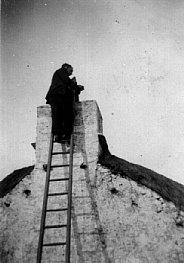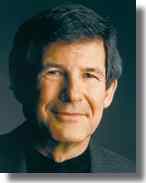
There once was a man who found a magic lantern.
Upon rubbing it, there emerged in a puff of smoke, the Genie of the 3 wishes.
The Genie was a mischievous old chap who enjoyed toying with those who summoned him.
"What have we here? Another lamp rubber!!" he laughed. "My friend, you have three requests - no more. Three petitions, and after I’ve given you that, I’m going to give you nothing else. So make your wishes"
The man was delighted. He said, "You mean you will give me any three things I ask for?"
And the Genie said, "Yes - but nothing more."
So the man said, "You know, I feel a little ashamed to say this, but I’d like to get rid of my wife. She’s a nag and she’s unbearable. I cannot live with her. So if I could get rid of her?"
So the Genie said, "All right, your wish will be granted."
And his wife died.
Well, the man felt guilty about the relief he felt in his heart, but at the same time, thought, "I’ll marry someone else who’s more attractive."
When the relatives and his friends came to the funeral, they began to praise this woman who had died, and the man suddenly came to his senses. He said, "My goodness - here was this lovely woman, and I hadn’t even noticed her. I didn’t appreciate her when she was living."
So he felt awful about that. He went running back to the Genie and he said, "Bring her back to life!!"
The Genie laughed, "All right. Second wish - granted."
Now he had only one wish left. So he thought, "What shall I ask for?"
And he consulted his friends.
Some of them said, "Ask for money. If you have money you can get anything."
And others said, "What’s the use of money if you have no health? Ask for health"
To which others replied, "What’s the use of health if you have to die some day? Ask for immortality."
And others would say, "What’s the use of living forever if you have no one to love you? Ask for love."
So the poor man didn’t know what to ask for.
He thought, and he thought - and one year went by, and five years, and ten years and he hadn’t asked for anything yet.
So one day the Genie appeared to him and said, "When are you going to ask for that third wish of yours?"
And the poor man said, "Oh Genie, I’m all confused. I don’t know what to ask for. Could you tell me what to ask for? Could you advise me?"
And the Genie laughed and laughed when he heard that.
He said, "You fool....you don’t need to ask for anything! What you need to do is choose. And the only choice you need to make is this........choose to be happy no matter what you get. Therein lies the secret."
The man’s mind was instantly transformed when he heard these words...and for the first time in his life he felt truly empowered and happy.
In gratitude, he returned his third wish to the Genie. "Here, take this wish for yourself....I have no need for it"
The Genie laughed loudly..."At last someone gets it!!"
ADAPTED FROM A STORY TOLD BY ANTHONY DE MELLO
We are all conditioned in one way or another.
Generally most of us, consciously or unconsciously, continue to use the concepts of our conditioning as a tinted screen through which we view reality.
For those raised in the Christian tradition, Anthony De Mello breathes new life into old concepts.
Enjoy!

http://www.geocities.com/~spiritwalk/demelloawareness.htm
http://www.geocities.com/~spiritwalk/demello.htm
http://www.geocities.com/~spiritwalk/demello1min.htm









